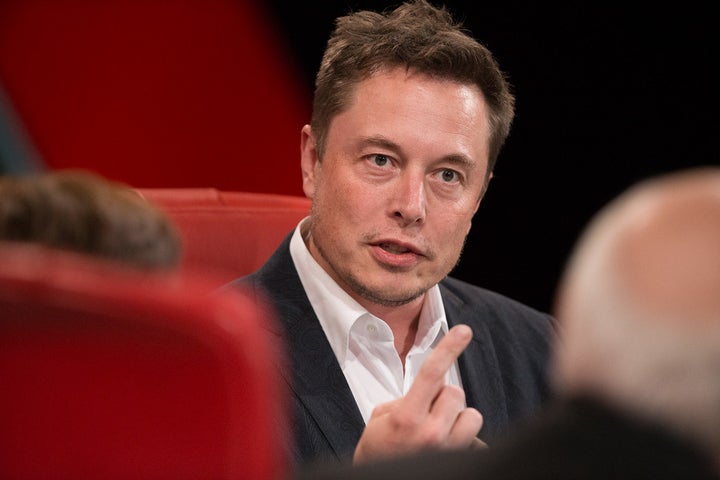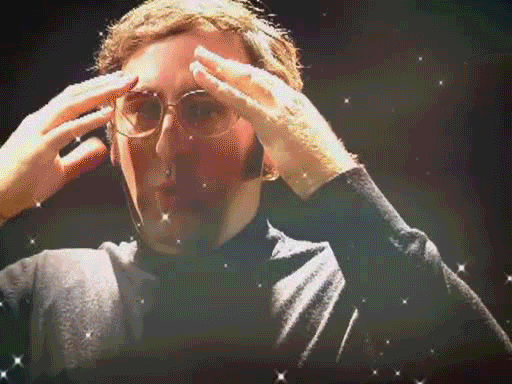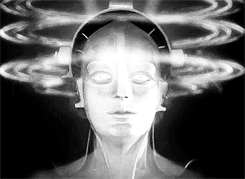
Asa Mathat for Vox Media
At 9 p.m. on a Wednesday night, at an exclusive resort along the California coast, Elon Musk blew a lot of millionaires’ minds.
Musk is the CEO of two audacious companies, SpaceX and Tesla. He was onstage at Code Conference, a prestigious, invite-only tech event to which tickets cost $6,500 (excluding hotel). The three-day conference is hosted by tech blog Recode at a cliffside resort outside Los Angeles and is attended by startup founders, brand reps, a curated list of reporters, and roving packs of venture capitalists wearing Apple Watches. Attendees exiting the ballroom after Musk’s hourlong session looked dazed. They made explosion gestures at the sides of their head as though the scope of Musk’s ambitions had — boom — set off cerebral rockets from which they may never recover.
The trigger for all this cognitive decimation included Musk’s meditations on Mars (it should be run as a “direct democracy”), neural lace (the next phase of artificial intelligence: a layer inserted in the jugular), and whether our reality is really just a video game simulation (no doubt). “The odds that we're in base reality is one in billions. Tell me what's wrong with that argument?” said Musk.
No one did. This was not the room for that. This year’s conference also included talks from Bill and Melinda Gates, Amazon CEO Jeff Bezos, and Google CEO Sundar Pichai. Musk was there to offer a vision of the future and some light intellectual domination — not to be fact-checked by lesser beings.
Code Conference (formerly: D Conferences) is known for operating more like an executive clubhouse than, say, the crowded bazaars of TechCrunch Disrupt or CES. This is where young Mark Zuckerberg sweated through his Illuminati hoodie and where Steve Jobs and Bill Gates sat down together for a joint interview. This year, Obama was rumored to come (he didn’t). Elizabeth Warren came last year. Kim Kardashian appeared at one of Code’s offshoot events.
Recode co-founders Kara Swisher and Walt Mossberg are two of the best-known tech journalists in the industry. Swisher is both feared and adored for her quick wit, bullshit detector, and combative interview style, which shines onstage. She generously mentors many reporters (including myself) and encourages them to be aggressive and fearless. Yet Code Conference is a very safe space for the tech elite.
Jack Dorsey felt comfortable enough to go onstage wearing a #StayWoke Twitter shirt despite Twitter’s abysmal diversity record. (The shirts were made by Twitter’s black employees group Blackbirds. There was one in every conference swag bag.) Despite the mounting antitrust cases against Google, CEO Sundar Pichai faced only one question about about investigations in the European Union. “It’s a position we feel fortunate to be in — we are very, very popular and users use us a lot,” he said with a smile. Sheryl Sandberg (a friend of Swisher’s) argued that Peter Thiel’s revenge plot on the media won’t get him kicked off the board because it was “independent” of his role at the world’s most influential media distribution platform. Sandberg made it all sound like a well-established, accepted practice; nobody blinked.
That safe cocoon extended even to the conference’s alt-programming track, like the talks from Bill and Melinda Gates about the massive impact that access to contraception has on the lives of women, and from DeRay Mckesson, one of the leaders of the Black Lives Matters movement, who joined Dorsey on stage. "Conferences like this don't reflect the diversity of the country,” Mckesson told the crowd, urging them to diversify the rooms where decisions get made.
He was the first and only African-American speaker onstage that week.
But back to Musk, whose only actual news was about updated deadlines for SpaceX and Tesla. However, his every utterance was covered like a revelation because, well, he’s Elon. He has successfully risen up from the ranks of piddling software slingers to become a metal-bending, gravity-defying demigod. His crazy ideas about electric vehicles and rockets have proven wildly influential. So if he says he’ll reach escape velocity to Mars before this ruined planet of ours implodes, you listen. And for the people in the room who haven’t shared a hot tub with Musk: *mind-exploding hand-gestures*.
The free booze helped.
When Musk’s private jet was delayed, pushing the session well past its 8 p.m. start time, guests lingered at the catered outdoor dinner, where they were served sweet potato samosas and meatless burgers from Impossible Foods (which has raised $182 million from investors like Bill Gates and Khosla Ventures to make a sustainable global food system). The previous night, a hipster coffee cart set up camp on the balcony, serving complimentary coffee cocktails.
At dinner the first night, there was a confluence of tables with powerful venture capitalists, not unlike Burning Man’s Billionaire’s Row by the beach. Vinod Khosla, Yuri Milner, Bill Gurley, Chamath Palihapitiya, and Jim Breyer could be found, and approached, milling about between sessions as well. The ability to pull from tech’s pantheon is what makes Code Conference so popular with industry insiders and reporters. But it also leads to a clubby environment where sacred principles and outlandish presumptions can go unchallenged. For example: What are the odds that investing in rockets is the best way to save mankind?
Never mind, blastoff.

Tim and Eric Awesome Show, Great Job!
The previous afternoon Bezos spoke onstage for a session just as rousing as Musk’s. Bezos also ascended into visionary mode when he talked about his own massive investment in space. Both billionaires threw out tweetable lines that showed their interplanetary perspective. Bezos spoke about “zoning Earth for residential and light industrial.” (The heavy industrial stuff would move “off-planet” in a few hundred years when chip factories would be built in space.) Musk threw out the phrase “Earth-based revenue,” like monetizing Mars was just a matter of time.
Meanwhile, back on our home planet, Uber accepted $3.5 billion from the sovereign wealth fund of Saudi Arabia, where the repressive political regime has forbidden women to drive. (The news dropped right before Uber’s Chinese rival took the stage at Code.) Airbnb is trying to make its platform less hospitable to racists, and social media’s messianic march to take over the globe has clashed, disastrously, with regulators and cultural norms in India, Iran, and Russia. And Peter Thiel, a billionaire Facebook board member, has been secretly investing in lawsuits to put Gawker out of business while Facebook is battling widespread distrust over its bias and stranglehold on the media.
These clashes between technology and the world of men made the future as told by Musk and Bezos sound like an escapist fantasy — a tabula rasa where messy Earth-based problems either disappeared or were offshored to outer space. At times, the whole thing felt like a front-row seat to watch billionaires fight a proxy war over what the future will look like for the other 99 percent — whether that was space, AI, poverty, or the First Amendment.

Metropolis
Code Conference couldn’t have come at a weirder time in already strained relationship between Silicon Valley and its chroniclers. Media people are flabbergasted at tech investors defending Theranos; tech investors are appalled that anyone in the media could defend Gawker. Both sides also seem a bit chastened by what slipped past their attention (see again: Theranos). Tech investors seem certain that there’s a media conspiracy to hurt them. Media people got their Thiel conspiracy theory confirmed. And there’s a phalanx of public relations people in between. As “tech” progresses faster and faster and into new areas, the tech press becomes increasingly untrained to keep it in check. So, what better time to share some venture-backed meat and guarded small talk?
It felt like a zoo where the lions were let out of their cages, but you’re supposed to treat them like cats. Or maybe it’s the other way around.
Recode announced before the conference that Gawker founder Nick Denton was coming to speak on the third day. Thiel was invited to debate him, but didn’t show. Nor could they find a stand-in. “People like to tweet and fund lawsuits, but no one would come out and debate,” Swisher said, as one of the Code’s signature red chairs remained empty.
The previous day, I'd heard Khosla say that he would have debated Denton, but the schedule didn’t work out. “What would you have said?” I asked. He didn’t want to comment, and suggested I read his tweets on the subjects — but to read all of them together. “I don’t care about Gawker so much,” Khosla said, eventually. He cares because “it lowers the standards of the New York Times” and other publications in regard to fact-checking. “What if I called you a child molester?” he asked.
Onstage, Denton told Swisher that the confluence of money and power in Silicon Valley are both “relatively new,” so they are not used to being covered as a group with entrenched interests. To the outside world, however, the rich seem to be “controlling things from the shadows, funding lawsuits, special-purpose vehicles, offshore accounts, whatever it is they can exercise power very discreetly.” Nowadays, a Silicon Valley billionaire is a 1,000 times more powerful than your average congressional representative “and yet subject to a fraction of the scrutiny, accountability,” said Denton. Those same power brokers, he added, invest or lead companies that monitor everyone else. News, journalism, and gossip are one corrective, he said.
But perhaps the chumminess on display at Code poses a more constant and diffuse threat to aggressive journalism than a vengeful billionaire, or even a biased billionaire publisher.
The closer you get, the argument goes, the more you know and the less you say in order to keep that access. It may sound like a soft power, but that is exactly what informs the kind of coverage you see in the press, and it explains Silicon Valley’s ability to evade questions. When Swisher and Mossberg tried to press Musk on his fears of runaway AI compared to fears of Donald Trump (whose golf course happens to be less than five miles away), the CEO of the company that's trying to send people to Mars said of the election, “I'm not sure how much influence I can have as one person in the outcome.”
During his speech, Musk touched on that same theme of increasing inequality when it comes to power and control. In the midst of his diatribe about the dangers of AI, Musk told the audience that there was a particular quote he loved from Lord Acton. “He was the guy who came up with ‘Power corrupts and absolute power corrupts absolutely,’” Musk said. The quote that applied to AI, Musk continued, was “Freedom consists of the distribution of power and despotism in its concentration.”
The entrepreneur’s wording is a little different than Acton’s, but the meaning is the same. “I don’t know a lot of people who like the idea of living under a despot,” Musk quipped.
“And the despot would be the computer?” Swisher asked.
“Or the people controlling the computer,” Musk replied.
Disclosure: The author of this post was previously employed by Gawker Media.
from BuzzFeed - Tech https://www.buzzfeed.com/nitashatiku/ground-control-to-silicon-valley?utm_term=4ldqpia
No comments:
Post a Comment